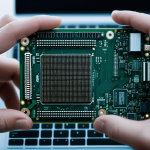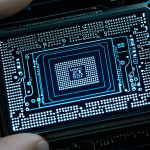Overview of UK Computing Hardware in Educational Technology
UK computing hardware plays a pivotal role in the educational technology tools landscape within the UK education sector. Notable devices such as the Raspberry Pi and the BBC micro:bit have become staples in classrooms nationwide. These UK EdTech devices are designed with features tailored to educational environments, including affordability, programmability, and ease of use. For instance, the Raspberry Pi offers a compact, low-cost computer with versatile connectivity options, enabling students to explore coding, robotics, and digital creation hands-on. Similarly, the BBC micro:bit simplifies basic computing concepts through its intuitive design and built-in sensors.
These devices have gained widespread adoption due to their ability to enhance practical learning and foster computational thinking from early education stages. Schools benefit from hardware that supports diverse learning objectives while aligning with national education goals. The prevalence of such UK computing hardware in schools underscores their significance in equipping students with relevant digital skills, making them essential educational technology tools for modern classrooms.
This might interest you : What role does UK computing hardware play in enhancing machine learning applications?
Overview of UK Computing Hardware in Educational Technology
UK computing hardware plays a pivotal role in advancing educational technology tools within the UK education sector. Devices such as the Raspberry Pi and BBC micro:bit are widely recognized for their cost-effectiveness and versatility. The Raspberry Pi boasts features like low power consumption, compact design, and compatibility with various programming environments, making it ideal for classroom projects ranging from basic coding to complex robotics. Similarly, the BBC micro:bit stands out with built-in sensors and user-friendly interfaces tailored to younger learners, enhancing hands-on interaction.
These UK EdTech devices are prevalent across primary and secondary schools, reflecting their significance in fostering digital literacy. Their affordability and adaptability allow educators to seamlessly integrate computing lessons into diverse subjects, supporting a growing emphasis on computational thinking. The presence of these distinctive pieces of UK computing hardware empowers schools to offer practical learning experiences that align with national education priorities.
Have you seen this : How Can Emerging Technologies Impact UK Computing Hardware?
As educational technology tools, these devices remain central to the UK education sector’s drive toward innovative, accessible learning environments, providing a foundation for skills development and future technological fluency.
Influence on Curriculum and Teaching Approaches
UK computing hardware has a significant impact on the UK curriculum, particularly in computing education. Devices like the Raspberry Pi and BBC micro:bit enable educators to integrate practical coding and computational thinking exercises directly into lesson plans. This hardware integration encourages interactive learning strategies, moving beyond theory to hands-on experience. For example, teaching strategies evolve to include project-based learning where students design and build working models, fostering problem-solving and creativity.
The design of the UK computing curriculum reflects these capabilities by incorporating modules that leverage the unique features of UK EdTech devices. National education standards emphasize digital literacy and programming proficiency, which these hardware tools support effectively. As a result, teaching approaches become more dynamic and aligned with real-world technological applications.
Moreover, the prominence of UK EdTech devices promotes pedagogical innovation, allowing teachers to tailor lessons to diverse learning styles. This adaptability helps bridge gaps between traditional instruction and modern technology-driven education, ensuring students develop essential skills for the digital age.
Overview of UK Computing Hardware in Educational Technology
UK computing hardware remains central to the educational technology tools shaping modern classrooms. Key UK EdTech devices like the Raspberry Pi and BBC micro:bit excel due to their thoughtful design tailored for education. The Raspberry Pi features a compact form factor, low power consumption, and compatibility with a broad range of programming languages and peripherals. This versatility empowers students to create projects spanning coding, robotics, and multimedia.
Similarly, the BBC micro:bit integrates built-in sensors such as accelerometers and magnetometers, offering intuitive interaction that supports beginner learners progressing to coding fundamentals. Both devices emphasize affordability—a critical factor ensuring broad accessibility across the UK education sector.
The widespread adoption of these UK computing hardware solutions highlights their significance: schools leverage these tools not only to meet curriculum goals but also to encourage hands-on, creative learning experiences. Their presence supports digital literacy initiatives and helps bridge gaps between theory and practical application. Together, these devices provide a solid, scalable foundation for embedding computational thinking skills within diverse educational contexts throughout the UK.
Overview of UK Computing Hardware in Educational Technology
UK computing hardware, particularly UK EdTech devices like the Raspberry Pi and BBC micro:bit, remains fundamental to the evolution of educational technology tools within the UK education sector. These devices combine distinctive features ideally suited for classrooms: low cost, adaptability, and user-friendly programming interfaces. The Raspberry Pi’s compact design and extensive connectivity allow students to engage with complex projects including robotics and software development. Meanwhile, the BBC micro:bit’s integrated sensors and simple input/output options support active learning and experimentation for younger learners.
Their widespread prevalence in UK schools reflects robust demand driven by their versatility and alignment with educational goals. UK computing hardware supports diverse subjects beyond computing alone, allowing teachers to integrate coding into science, math, and creative disciplines with ease. Importantly, these tools empower students by providing hands-on experience, grounding abstract concepts in practical application.
The prominence of these UK EdTech devices fortifies the education sector’s commitment to nurturing digital literacy and preparing students for technology-rich futures. Their strategic design and widespread implementation underscore the value of UK computing hardware as indispensable assets for modern UK classrooms.











